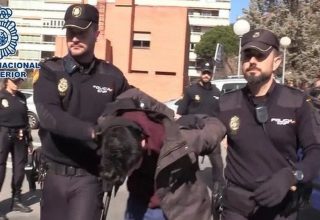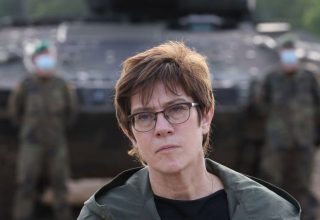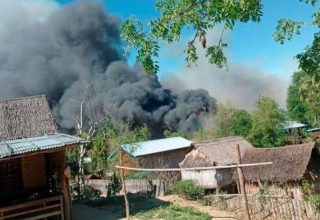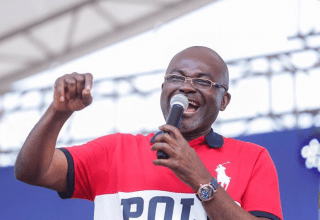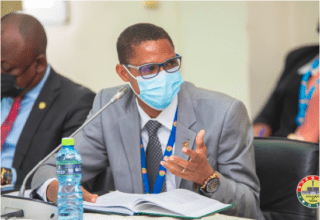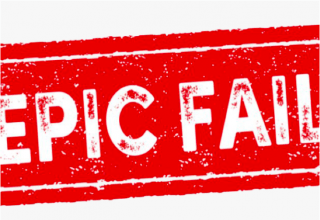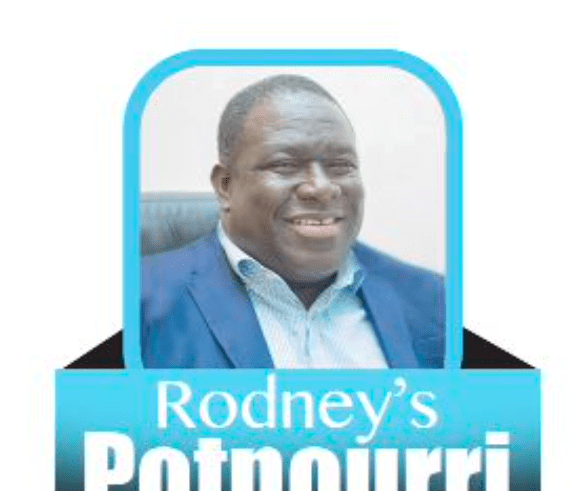
In exactly six days, Ghanaians will be going to the polls for the presidential and parliamentary elections.
I was in Kumasi when the erstwhile Electoral Commission (EC) boss, Mrs Charlotte Osei, declared Nana Addo Dankwa Akufo-Addo the winner of the 2016 presidential election, and therefore, the President-elect of the republic.
That night, some friends and I invaded Bantama High Street, where an impromptu street party was taking place, as crowds danced for joy to loud music blaring from the several bars on the street. Ironically, the most popular song for the New Patriotic Party (NPP) followers and supporters that night, not only in Bantama but across the country, was not any of the party’s campaign songs but rather the National Democratic Party’s (NDC) popular Onaapo campaign song.
The song had been hijacked and was being literally rammed in the faces of utterly dejected NDC supporters, whose pain was evident.
Competitive frontline politics is a cruel blood sport that is not meant for the faint-hearted.
Grueling road
I can imagine the riot of emotions swirling in the head of Nana Akufo-Addo that night, after a long and grueling battle to become President.
That battle formally began somewhere in 1998 during the NPP’s presidential primary. After losing his bid to become the party’s flag bearer to the ultimate winner, J.A Kufuor, he went on to serve for eight years in his government.
Afterwards, his two subsequent presidential bids failed and he went on to win at the third try.
It takes a lot of grit to remain that focused and determined for that long. I wish I had that stamina.
Comparing legacies
After four years in office, and with an election around the corner again, what is the NPP government’s legacy on which it stands to seek election?
Fortunately, both candidates, President Akufo-Addo and former President John Mahama have both had the opportunity to serve one term in office as President.
They have both tasted victory and defeat at the polls. That should make it relatively easy to compare the two men’s record in office as we head for the polls next week.
In this election campaign, as indeed with earlier election campaigns, there have been heated arguments about who built more hospitals, roads, schools, bridges and the like.
In a country where these facilities are in short supply, they are terribly important. While other countries take them for granted and they are not campaign issues, it is a different kettle of fish in this country.
That bad (or non-existent) road, or that underfunded or non-existent health facility can make all the difference between life and death for our citizens, so they have every right to consider them as important issues in their voting decision.
Beyond infrastructure
But much as these things are extremely important, and much as this government has delivered on infrastructure across various sectors, I agreed with Mr Mahama when he said during the 2008 election campaign that every government undertakes infrastructure projects and ,therefore, it would be ‘an exercise in mediocrity’ for any government to hide behind such projects in the face of economic downslide.
That is why I found his recent call for a debate with the President on infrastructure rather curious.
I hold the view that a ruling political party’s greatest legacy lies not in schools, roads and hospitals, however, important they are.
It lies in strategic, innovative, bold policies and ideas that revolutionise the lives of the people for generations.
In the UK, for instance, the establishment of the National Health Service (NHS) by Clement Attlee’s Labour government in 1948 was the product of an ardent belief that the state must provide the citizen with free healthcare at the point of delivery from cradle to grave, funded from general taxation.
The same mindset fuelled the setting up of the welfare system to take care of the unemployed and vulnerable. Seven decades on, it has its challenges, but I do not think the UK can imagine life without the NHS. That is leadership.
Akufo-Addo’s legacy
President Akufo-Addo came to power on the wings of a number of initiatives that included the Free Senior High School (SHS) programme, the One-district, One-factory initiative (1D1F) and the Planting for Food and Jobs programme (PFJ).
In office, his Ghana Beyond Aid Agenda and the Year of Return programme have caught many an imagination and won the nation quite some plaudits.
I could go on and on in detail about each of these and more but space is a luxury when it comes to writing a column, so I will focus on education.
While there are so many important education reforms being rolled out, the Free SHS programme, I believe, is the most far-reaching and impactful.
It takes a certain level of boldness to decide to roll out an ambitious programme such as this — a programme whose failure could spell political doom.
But when you are anchored in your conviction that poverty should never be a barrier for a child to attain SHS education, you just get it done, no matter what it takes.
Of course, educational infrastructure is part of this conversation because the students must have classrooms to sit in and dormitories to sleep in.
But our conversation must necessarily go beyond merely counting buildings.
Yes, there are challenges, no doubt. There will not be any perfect time because life is a struggle made up of perfect storms every time.
We don’t have to wait until God knows when, for the children of our poor to benefit from free education. They can’t continue to be ‘drawers of water and hewers of wood’.
They deserve opportunities to aspire beyond their current station and education is their surest way out.
I firmly believe the NPP has a better record when it comes to poverty alleviation interventions and outside-the-box solutions to social challenges.
For his clarity of purpose and his desire to create opportunities for all our children through the power of education among others, I am quite clear where on the ballot paper my right thumb will hover and come down like a gavel come next Tuesday and I am confident that my thumbprint will be part of the winning brigade.
Source: graphic.com.gh




